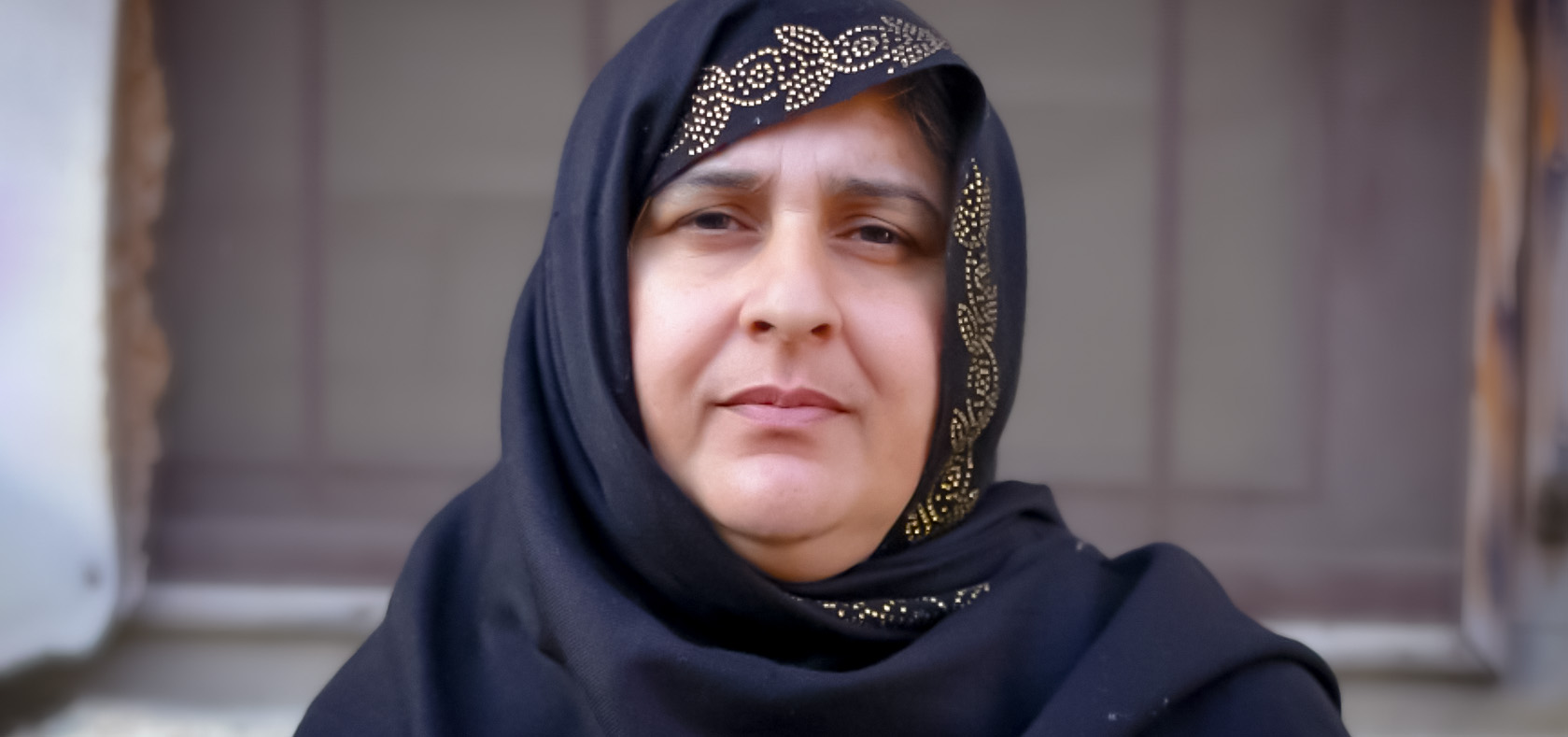I am Generation Equality: Tabbasum Adnan, Founder of First All-Women Council of Tribal Leaders in Pakistan
Billions of people across the world stand on the right side of history every day. They speak up, take a stand, mobilize, and take big and small actions to advance women’s rights. This is Generation Equality.Date:
Interviewed by: Hassan Abbasi


Three things you can do to help eliminate domestic violence:
- Never compromise on your principles and integrity
- Raise your voice against oppression
- Take charge and fight your own battles
I am generation equality because…
"I have carried out significant initiatives for women, such as for jury issues and domestic violence.
My husband was 20-22 years older than me. I shared my concern with family and there was a lot of uproar. … After I did the divorce, no one in my family showed any support and my brother didn’t contact me for over three months.
Never simply accept
Right after my divorce, I began a career in a local organization.
I attended sessions on advocacy on issues like polio and health and afterward, I started sitting with other women to discuss their issues and problems. All of them shared their tragic stories with me, and I realized that I am not alone in my struggles and domestic violence issues are widespread.
“God has not made us as weak as we have made ourselves.”
I advised them, “Let’s forgive the perpetrators”. As I said this, a woman stood up and exclaimed, “How can you forgive such a person who threw acid on my daughter that burned 70 per cent of her body?" She said her in-laws and husband threw acid on her, but nobody took action and she died. I wondered, if someone had done the same to my daughter, what would be my reaction? I was traumatized by even the mere thought of it.
Then I approached many male-led jirga (councils of tribal leaders) and made protests but none of them gave an optimistic response, which made me angry, and so I decided to create a new platform exclusively for women.
A fatwa was issed against me; they condemned me for normalizing obscenity and indecency among women by persuading them to come out of their homes. … I said, ‘You should also give a fatwa against Hazrat Khadija (the first wife of Prophet Muhammad) because she was also a trader.’
If there’s a feud of a severe nature such as murder, trade or inheritance, they (the men) resolve it on their own, which is unacceptable. …
In the jirga, they vani their girls aged 6-12 as compensation (a local custom to settle disputes). They take the property and give their daughter to the opposing side in return, or give their daughter as compensation for blood money.
I am currently in contact with a woman who was given as vani and is now of old age. The things that she told me are heart-wrenching and make you wonder how so much oppression can be done against a single human being.
I have succeeded in getting about 13 girls who were given as vani back to their homes. By the grace of God, due to our efforts, cases of vani are now being reported.
God has not made us as weak as we have made ourselves.”
Tabassum Adnan lives in Swat district of Khyber Pakhtunkhwa province and is the founder of the first women’s jirga in Pakistan. She works to stop practices such as “honour” killings, acid attacks and domestic violence. She received the U.S. State Department’s International Women of Courage Award in 2015.